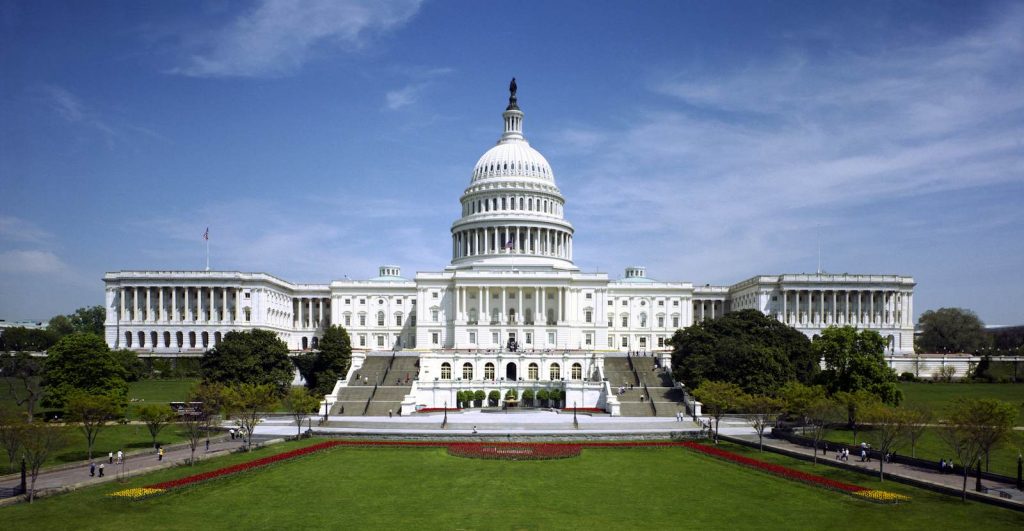Government Grants
Business Grants
Home Owner Programs
Federal Programs
About Us
Drug Free Communities Mentoring Program
The Executive Office of the President, Office of National Drug Control Policy (ONDCP), and the Department of Health and Human Services (DHHS), Substance Abuse and Mental Health Services Administration (SAMHSA), Center for Substance Abuse Prevention (CSAP) are accepting applications for fiscal year (FY)
2010 Drug Free Communities Mentoring Program (DFC Mentoring) grants.
The purpose of the DFC Mentoring Program is to provide grant funds to existing DFC grantees, so that they may serve as Mentors to newly-formed and/or developing coalitions that have never received a DFC grant.
DFC is a collaborative initiative sponsored by ONDCP in partnership with SAMHSA in order to achieve two major goals:
* Establish and strengthen collaboration among communities, public and private nonprofit agencies, and Federal, State, local, and tribal governments to support the efforts of community coalitions to prevent and reduce substance use among youth.
For the purposes of this RFA, youth is defined as individuals 18 years of age and younger.
* Reduce substance use among youth and, over time, among adults by addressing the factors in a community that increase the risk of substance abuse and promoting the factors that minimize the risk of substance abuse.
(Substances include, but are not limited to narcotics, depressants, stimulants, hallucinogens, inhalants, marijuana, alcohol, and tobacco, where their use is prohibited by Federal, State, or local law.) Note:
DFC projects must focus on multiple drugs of abuse.
When the term drug or substance is used in this funding announcement, it is intended to include all of the above drugs.
Mentoring grant funds must be used by the Mentor coalition (grantee) for the direct benefit of the Mentee community/coalition.
Funding through this grant should support access for the Mentee community/coalition to obtain the training and technical assistance necessary to help them form a community coalition and pursue a DFC Support Program grant.
In addition, the Mentor coalition must establish a mentoring plan that not only includes training and technical assistance for the Mentee community/coalition, but also assists the new coalition in moving toward being an effective entity capable of addressing youth substance use.
It is the intent of the DFC Mentoring Program that communities mentored through this effort will form functioning coalitions working to reduce youth drug use at the community level, and that those coalitions should meet the basic eligibility criteria (Part III) of the DFC program.
By the end of the two-year grant period, Mentor coalitions should have fully prepared each Mentee community/coalition to effectively compete for their own DFC grants.
The Drug Free Communities Program (DFC) was created by the Drug Free Communities Act, 1997 (Public Law 105-20).
DFC Mentoring grants were established as a component of the DFC Program when the DFC Program was reauthorized on December 14, 2001 (Public Law 107-82, 115 Stat.
814).
Congress again demonstrated its support for the DFC Mentoring effort when the DFC Program and the DFC Mentoring Program were reauthorized in December of 2006 (Public Law 109-469).
The coalitions that have been awarded DFC Mentoring grants represent a cross-section of communities from every region in the nation.
In FY 2009, ONDCP awarded 10 new DFC Mentoring Grants and 10 Mentoring Continuation grants.
More information about DFC and DFC Mentoring grants can be found on the DFC Web site (http://www.ondcp.gov/dfc).
The purpose of the DFC Mentoring Program is to provide grant funds to existing DFC grantees, so that they may serve as Mentors to newly-formed and/or developing coalitions that have never received a DFC grant.
DFC is a collaborative initiative sponsored by ONDCP in partnership with SAMHSA in order to achieve two major goals:
* Establish and strengthen collaboration among communities, public and private nonprofit agencies, and Federal, State, local, and tribal governments to support the efforts of community coalitions to prevent and reduce substance use among youth.
For the purposes of this RFA, youth is defined as individuals 18 years of age and younger.
* Reduce substance use among youth and, over time, among adults by addressing the factors in a community that increase the risk of substance abuse and promoting the factors that minimize the risk of substance abuse.
(Substances include, but are not limited to narcotics, depressants, stimulants, hallucinogens, inhalants, marijuana, alcohol, and tobacco, where their use is prohibited by Federal, State, or local law.) Note:
DFC projects must focus on multiple drugs of abuse.
When the term drug or substance is used in this funding announcement, it is intended to include all of the above drugs.
Mentoring grant funds must be used by the Mentor coalition (grantee) for the direct benefit of the Mentee community/coalition.
Funding through this grant should support access for the Mentee community/coalition to obtain the training and technical assistance necessary to help them form a community coalition and pursue a DFC Support Program grant.
In addition, the Mentor coalition must establish a mentoring plan that not only includes training and technical assistance for the Mentee community/coalition, but also assists the new coalition in moving toward being an effective entity capable of addressing youth substance use.
It is the intent of the DFC Mentoring Program that communities mentored through this effort will form functioning coalitions working to reduce youth drug use at the community level, and that those coalitions should meet the basic eligibility criteria (Part III) of the DFC program.
By the end of the two-year grant period, Mentor coalitions should have fully prepared each Mentee community/coalition to effectively compete for their own DFC grants.
The Drug Free Communities Program (DFC) was created by the Drug Free Communities Act, 1997 (Public Law 105-20).
DFC Mentoring grants were established as a component of the DFC Program when the DFC Program was reauthorized on December 14, 2001 (Public Law 107-82, 115 Stat.
814).
Congress again demonstrated its support for the DFC Mentoring effort when the DFC Program and the DFC Mentoring Program were reauthorized in December of 2006 (Public Law 109-469).
The coalitions that have been awarded DFC Mentoring grants represent a cross-section of communities from every region in the nation.
In FY 2009, ONDCP awarded 10 new DFC Mentoring Grants and 10 Mentoring Continuation grants.
More information about DFC and DFC Mentoring grants can be found on the DFC Web site (http://www.ondcp.gov/dfc).
Agency: Department of Health and Human Services
Office: Substance Abuse & Mental Health Services Adminis.
Estimated Funding: $1,125,000
Office: Substance Abuse & Mental Health Services Adminis.
Estimated Funding: $1,125,000
Obtain Full Opportunity Text:
Drug Free Communities Mentoring Program
Additional Information of Eligibility:
The Drug Free Communities Act of 1997 (Public Law 105-02) and its subsequent Reauthorization Acts (Public Law 107-82, 115 Stat 814 and Public Law 109-469) authorize initial grant funding and renewable grant funding for coalitions who meet the eligibility criteria outlined below.
DFC Mentoring applicants must be current DFC grantees and must meet all eligibility requirements of the DFC Program.
All DFC Mentoring applications will be jointly screened by ONDCP and SAMHSA to determine whether each applicant meets all the DFC Mentoring program eligibility requirements contained in the eligibility requirements table below.
Applications submitted by eligible coalitions that demonstrate meeting all requirements will then be scored by an independent Peer Review panel according to the evaluation criteria described in Part V: Application Review Information.
DFC Mentoring grant funds are intended to provide support for a Mentor coalition (a current DFC grantee) to assist a new community/coalition (Mentee).
Applications submitted by Mentor coalitions (applicant) that do not demonstrate that they meet the eligibility requirements will not advance to the Peer Review stage.
SAMHSA/ONDCP will not accept any additional materials submitted after the published deadline for receipt of applications.
Eligibility Requirements Table: For a summary of the DFC Mentoring eligibility requirements and the minimum documentation applicants must provide in Part V-1 of their applications.
Where to Document sections, please see the Eligibility Requirements table in the Eligibilitiy seciton of the RFA.
Full Opportunity Web Address:
http://www.samhsa.gov/grants/2010/SP-10-006.aspx
Contact:
Barbara OrlandoOffice of Program Services, Division of Grants ManagementSubstance Abuse and Mental Health Services Administration1 Choke Cherry RoadRoom 7-1091Rockville, MD 20857(240) 276-1422
Agency Email Description:
barbara.orlando@samhsa.hhs.gov
Agency Email:
barbara.orlando@samhsa.hhs.gov
Date Posted:
2010-02-22
Application Due Date:
2010-04-23
Archive Date:
2010-05-23
Social Entrepreneurship
Spotlight
The U.S. Government on Cultivating Impact Investing And Social Enterprise

According to a Private Capital, Public Good report recently released at the White House from a group of A-list impact investing and social enterprise specialists, the U.S. government can do a lot to spur the growth among the impact investing and social enterprise sectors.

